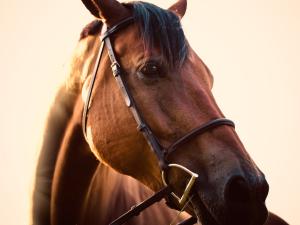
Summertime brings lots of opportunities for fun with our horses. But we also need to be alert to the risks hot weather can pose.
Summer heat can be really dangerous to horses, especially if they are unfit or over exercise. Horses suffering from hyperthermia (an abnormally high body temperature) can quickly become dehydrated, lethargic and weak. Severe heat stress can cause colic, diarrhoea or collapse, so it is important to keep your horse cool.
Young, old and ill horses are more vulnerable and must be monitored carefully. Always think about the causes of overheating and manage your horse accordingly.
Along with very hot weather, causes include excessive exercise, prolonged exposure to direct sunlight, poor ventilation in stabling, transporting over long distances, obesity and the use of inappropriate rugs.

The best ways to avoid overheating are:
If your horse is showing signs of overheating - profuse sweating, lethargy, staggering and weakness - move them into shade immediately. Cold hosing of the whole body will help to bring the temperature down, focusing on the big muscle masses in the hindquarters. Do not put wet towels over them as this traps the heat, but you can scrape off excess water and sweat. Gentle walking or standing in a breeze or under a fan will help. Offer small amounts of cold water to drink (half a bucket, maximum 10 litres) every 30 minutes.
Overheating can come on quite quickly in a horse which is exercising, with really heavy breathing, staggering and weakness when you stop. If you are riding in warm weather, have some buckets of water with sponges ready for when you get back. And if you are going away somewhere take those things and make sure there is going to be a water tap and if not, take some containers of water.
Also, ask yourself, is the horse fit enough for your planned activity? Don’t be tempted to think that because it’s a nice day you’ll go for a big ride with a horse which hasn’t been ridden much recently.